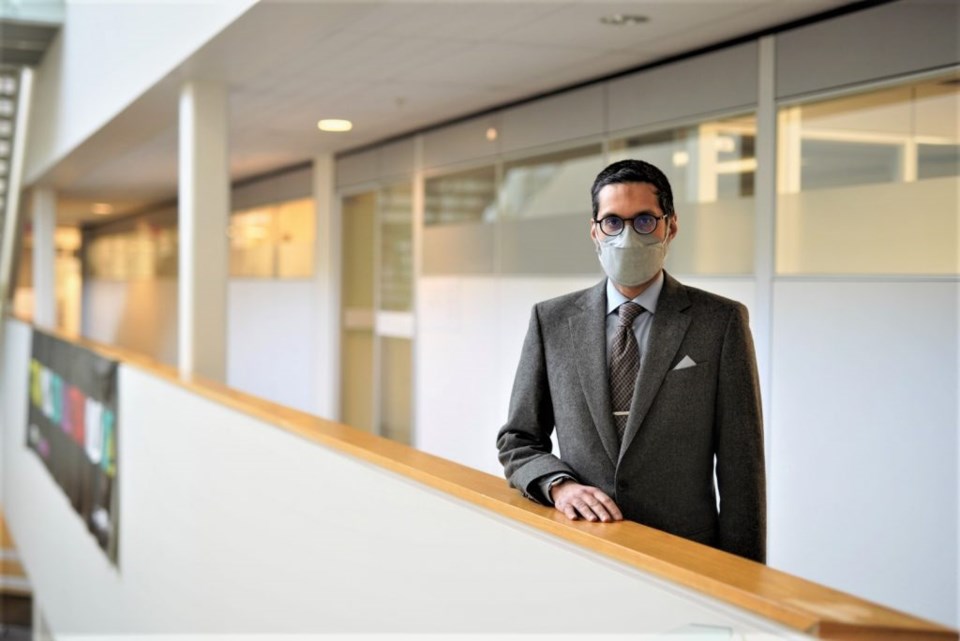
We’re in a good place with the pandemic, Dr Mustafa Hirji told reporters Monday.
The acting chief medical officer of health told reporters Monday he doesn’t think we’re going to need to close businesses or institute capacity limits this summer, and we might even get a reprieve from wearing masks.
But while we’re in a much better situation than we were last fall, he expects to see ongoing hospitalizations and deaths, continued strain on the health care system, people suffering from long COVID, and ongoing economic consequences, he said — the pandemic isn’t over, and infections could increase in the fall.
Nor is it going to be like a typical seasonal flu, he added, speaking of long-term plans that should be considered to control the virus.
Vaccinations remain the best protection, and he urged those who are not fully vaccinated to complete the series, saying that while 81.5 per cent of Niagara’s population has received two doses of vaccine, only 50.6 per cent have gone back for third doses, when three doses should be the standard.
He also suggested that proof of vaccinations should be updated to include a third dose, for employers who want to use the “vaccination tool” for staff or customers, and to be prepared “for the eventuality of bringing it back in the fall” if needed.
We need to make staying home when we’re sick part of our culture, even if we have a cold, and paid sick days to encourage us to stay home, and work from home if we’re able.
Hirji suggested investments should be made to improve ventilation and filtration, making public buildings safer. Building codes need to be updated for new builds and those going through extensive retrofits and renovations, with financial incentives for businesses to encourage them to make those improvements.
He also talked about looking at holiday calendars, building in some time off to prevent the spread of disease when we return to work.
With rapid tests still widely available, we should make use of them in certain circumstances, such as if we know we’ve been in contact with someone who has COVID, in which case we should use them for three days to be sure we’re
negative.
We should also take a rapid test for any cold-like symptoms, staying home whether we get a negative or positive result, but if the test is positive, we should also notify anyone we’ve been in contact with.
And it doesn’t hurt to take a test when we know we’re going to be in a group of people, just to be sure we’re safe to attend the gathering — we could be positive without having any symptoms.
Hirji said a non-partisan commission should set up to take “a really deep-dive look” at what occurred during the pandemic, to see what we can do better if it happens again.
With border crossings and restrictions still an issue for travellers, Hirji said he doesn’t think all measjures should be dropped, but we don’t need “onerous restrictions.”
They could be simplified to eliminate confusion, even with documentation on an international level, and “easier measures in place that people can understand as they cross borders.”